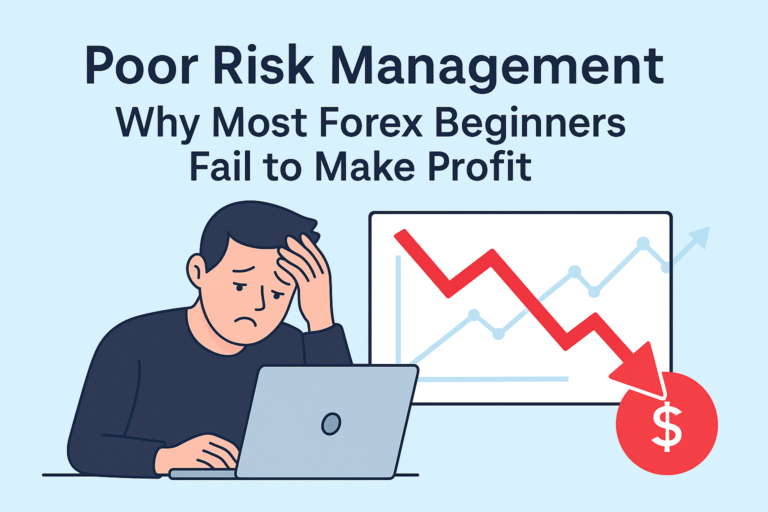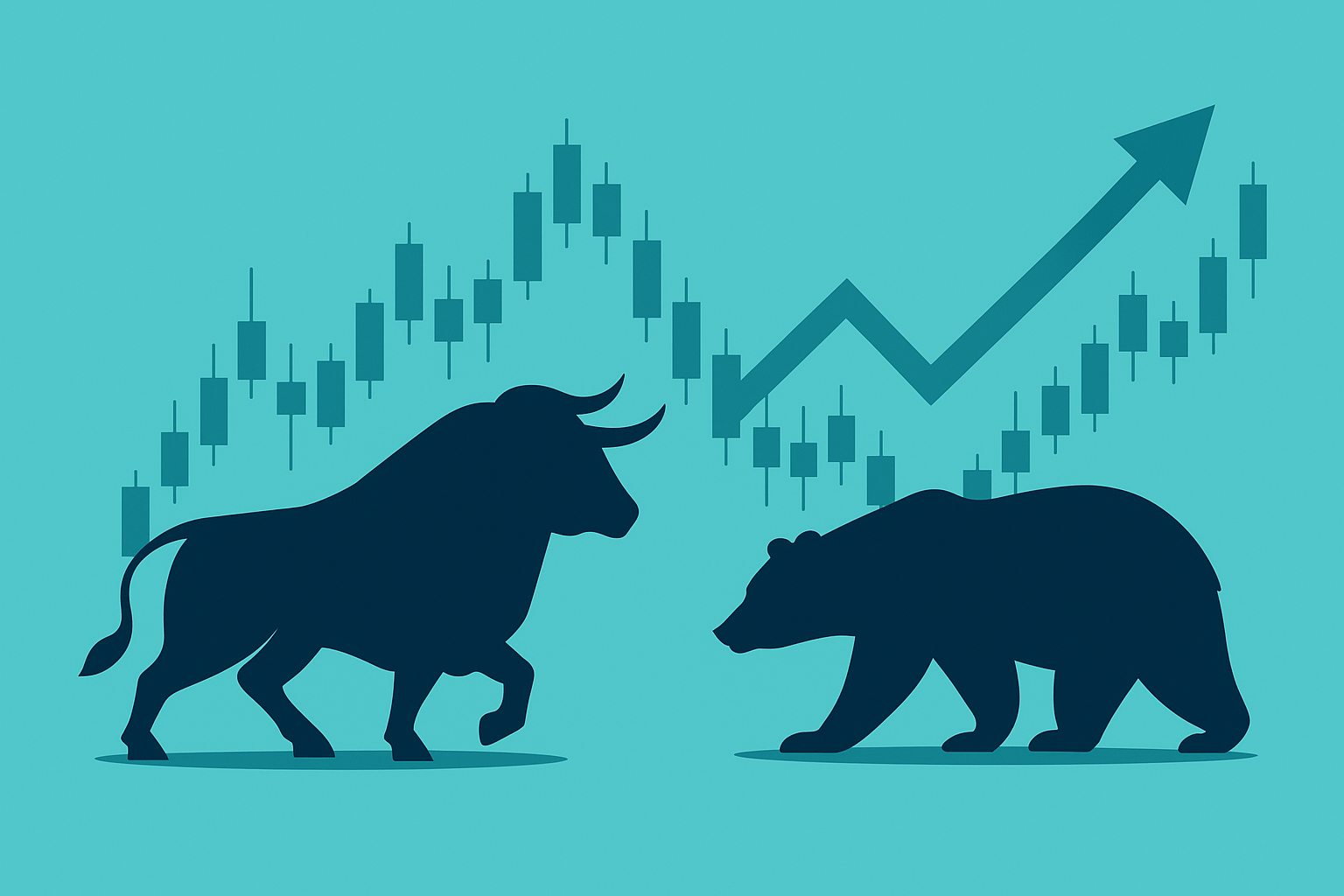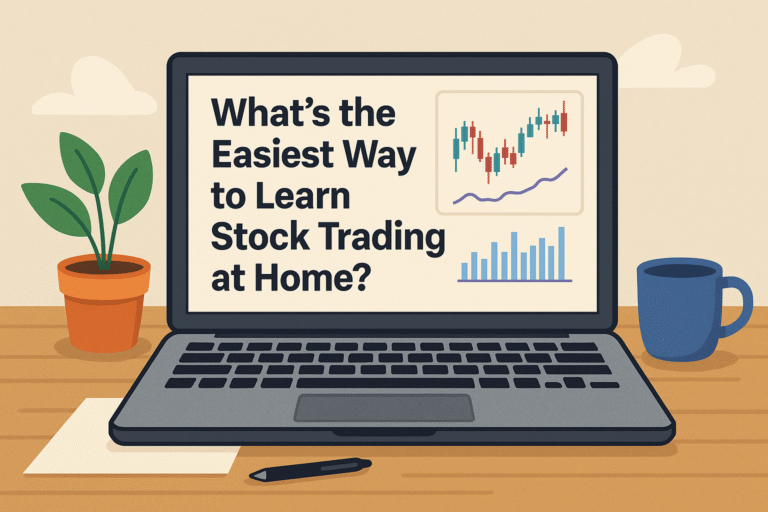Emotional Trading Mistakes Beginners Make – How to Avoid Costly Decisions
Trading isn’t just numbers and charts—it’s a mental game. Many new traders fail not because of bad strategies, but because of poor emotional control. In this post, we’ll explore the most common emotional trading mistakes beginners make and how you can avoid these costly decisions to protect your capital and grow with confidence.
Why Emotions Hurt Trading Decisions
Trading isn’t just numbers on a screen—it’s a psychological battle. Many beginners lose money not because of poor strategies, but because of poor emotional control. Understanding why emotions hurt trading decisions is the first step toward long-term success.
Emotions Cause Irrational Choices
When real money is on the line, emotions such as fear, greed, and hope often override logic. These feelings push beginners to:
- Enter trades too late (FOMO)
- Exit too early due to panic
- Overtrade after a loss to “get it back”
- Risk too much after a big win
These are exactly the emotional trading mistakes beginners make that lead to inconsistent results.
Emotional Triggers That Derail Traders
- FOMO – Fear of missing out causes late, risky entries
- Greed – Holding a winning trade too long hoping for more
- Fear of Losing – Freezes you from taking good trades
- Revenge Trading – Emotional reaction to losses
- Overconfidence – Leads to ignoring your trading plan
Research shows that our brains are wired to avoid losses more than we seek gains (loss aversion). This psychological trait often causes traders to make decisions that feel right emotionally—but are wrong logically.
💡 According to Investopedia, emotional trading leads to inconsistent and damaging trading behavior.
How to Overcome Emotional Decisions
Professional traders don’t rely on gut feelings—they rely on systems. To avoid emotional mistakes:
- Create a strict trading plan and follow it
- Use stop-loss and take-profit orders
- Track your emotional triggers in a journal
- Set daily limits (max trades, max loss)
- Take breaks when emotions rise
By building structure and discipline into your trading, you reduce the power emotions have over your decisions.
7 Emotional Trading Mistakes Beginners Make
Many new traders fail not because they lack knowledge, but because they let emotions control their decisions. These are the 7 most common emotional trading mistakes beginners make, and how to avoid them with simple strategies.
1. Fear of Missing Out (FOMO)
Jumping into trades because others are making money creates panic-driven decisions.
How to avoid it: Stick to your trading plan. If you missed the setup, wait for the next one. The market always gives second chances.
2. Greed
Trying to squeeze out a little more profit from a winning trade often ends in loss.
How to avoid it: Set realistic profit targets and exit when your plan says so.
3. Revenge Trading
After a loss, beginners often enter a new trade emotionally to “win it back” quickly.
How to avoid it: Take a break after a losing trade. Analyze what went wrong before entering again.
4. Overconfidence After a Win
One big win can make you feel invincible, leading to bigger risks and poor judgment.
How to avoid it: Stay grounded. Stick to your risk management rules no matter how good your last trade was.
5. Fear of Losing
Some traders don’t enter trades at all because they’re afraid of failure.
How to avoid it: Accept that losses are part of trading. Focus on managing risk—not avoiding it completely.
6. Holding Losers Too Long (Hope Trading)
Beginners often “hope” a bad trade will turn around instead of cutting the loss.
How to avoid it: Always trade with a stop-loss. Respect it.
7. Lack of Patience
Jumping into trades too early or exiting too soon ruins even the best strategies.
How to avoid it: Wait for proper setups. Quality is better than quantity in trading.
How to Master Your Emotions While Trading
One of the biggest reasons beginners lose money isn’t bad strategy—it’s poor emotional control. If you want to succeed in the markets, you must learn how to master your emotions while trading. Emotional discipline turns a losing trader into a consistent one.
1. Create and Follow a Trading Plan
Your plan should include entry and exit rules, risk management, and position sizing. When you follow a plan, there’s less room for fear, greed, or hesitation.
💬 If it’s not in your plan, don’t trade it.
2. Use Stop-Loss and Take-Profit Levels
Emotionally driven traders exit too early or too late. Pre-setting your stop-loss and take-profit removes guesswork and prevents panic decisions.
3. Keep a Trading Journal
Write down every trade—including how you felt during it. Over time, you’ll spot emotional patterns like revenge trading, overconfidence, or hesitation. This helps you fix behavior, not just strategy.
4. Take Breaks When Needed
After a loss, or even a big win, emotions run high. Step away from the screen, breathe, and reset. Trading while emotional increases the chance of poor decisions.
5. Set Daily Limits
Decide in advance:
- Max number of trades
- Max loss you’re willing to take
- When to stop trading for the day
These rules protect you from spiraling into emotional overtrading.
6. Practice Mindfulness or Deep Breathing
Simple breathing exercises or 5 minutes of mindfulness before trading can calm your mind and improve focus. A calm trader is a better trader.
7. Avoid Watching Every Tick
Watching charts too closely increases stress. Once you’ve placed a trade based on your plan, step back. Let the trade play out.
Lack of Patience
Among all the emotional trading mistakes beginners make, lack of patience is one of the most damaging. Many new traders expect quick profits and fast success. But in trading, being too eager often leads to poor timing, bad entries, and early exits.
Why Patience Matters in Trading
The market rewards patience, not pressure. Rushing into trades before a proper setup appears can ruin your strategy. Exiting too early because you’re afraid to lose a small gain also limits your potential profit.
Beginners often:
- Enter trades without confirmation
- Exit too soon due to anxiety
- Take multiple trades just to stay “active”
All of these habits lead to inconsistency.
What Happens When You Rush Trades
- You overtrade: More trades mean more risk, not more profit.
- You ignore your plan: Impulsive entries usually break your own rules.
- You burn out emotionally: Constant monitoring creates stress and fear.
Impatience is rooted in emotion, not logic—making it one of the most silent but dangerous emotional trading mistakes.
How to Build Patience
- Wait for clear setups: Only trade when your technical or strategy rules align.
- Use alerts: Let your platform notify you when your conditions are met—don’t stare at charts all day.
- Set goals in weeks or months, not minutes: Long-term thinking reduces emotional pressure.
- Take breaks: If you feel the urge to “just enter something,” step away.






